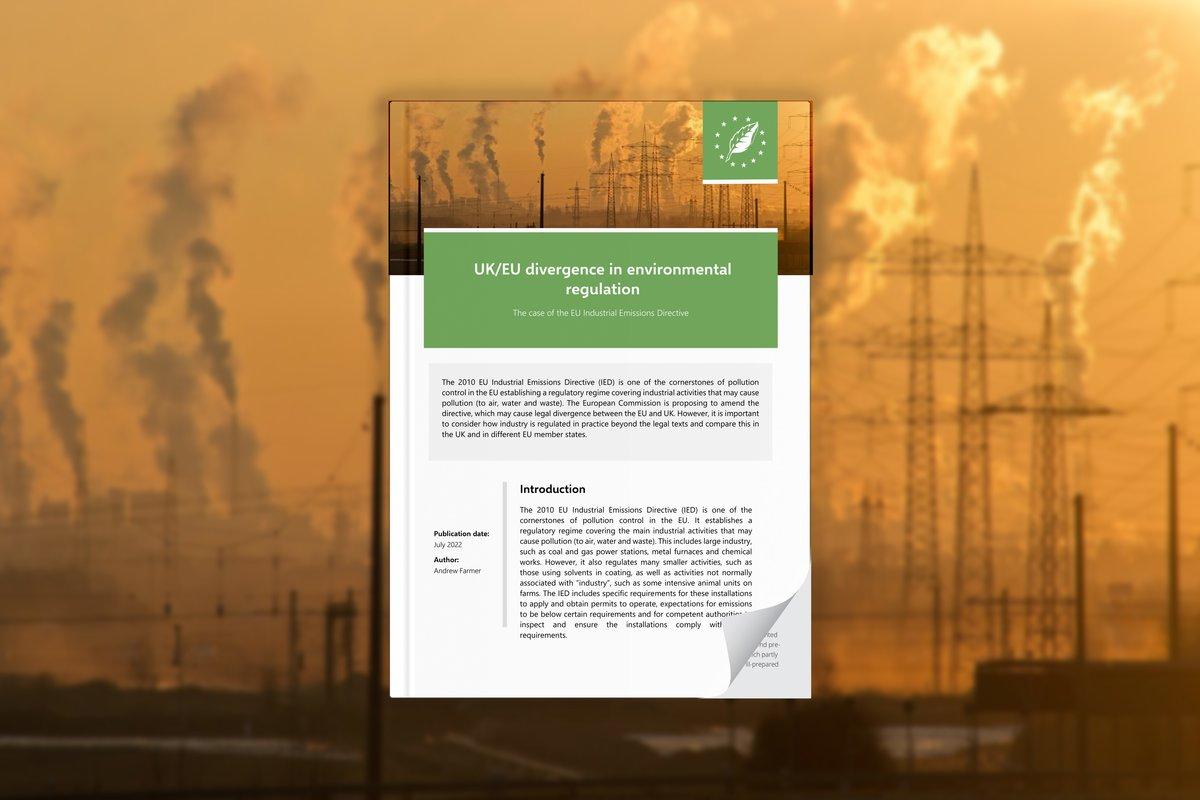AUTHORS: Andrew Farmer
The 2010 EU Industrial Emissions Directive (IED) is one of the cornerstones of pollution control in the EU establishing a regulatory regime covering industrial activities that may cause pollution (to air, water and waste). The European Commission is proposing to amend the directive, which may cause legal divergence between the EU and UK. However, it is important to consider how industry is regulated in practice beyond the legal texts and compare this in the UK and in different EU member states.
Strongly influenced by UK policy and practice, the IED, adopted in 2010, was a revision of the earlier 1996 Integrated Pollution Prevention and Control Directive (IPPC). In April 2022, the European Commission proposed to amend the IED once again but what does this mean for industrial pollution control in the UK post Brexit?
If the proposal is adopted and becomes EU law, then there will be divergence from the law continuing to apply in the UK. The proposal sets out some specific changes such as on the manufacture of batteries for electric vehicles, on intensive livestock units on farms and enforcement approaches.
This paper discusses the potential implications of these changes alongside the evolving policy landscape in the UK. It also considers the development of conclusions on Best Available Techniques and the introduction of lifecycle environmental performance of supply chains into IED which has been an element of UK policy and practice for some time already. Further, it explores the fact that much activity by regulators is not explicitly set out in the directive and comparisons between the UK and EU need to take this into account.

